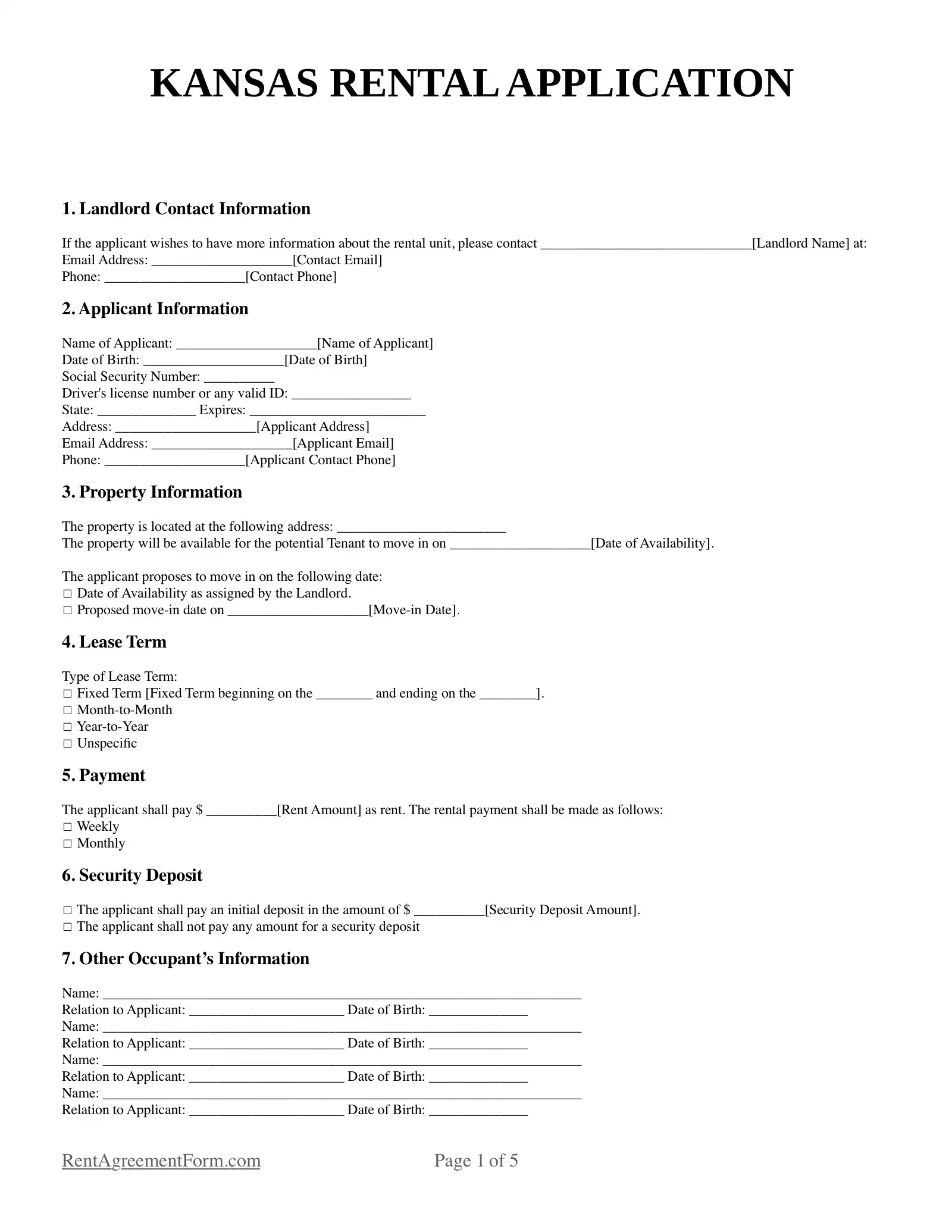Kansas Rental Application Form
Good barbeque, affordable cost of living, and reasonably priced real estate —these are just some of the reasons why many are looking to relocate to the Sunflower State. If you’re one of them and you’d like to rent property in Kansas, you’ll need to learn about the first step to leasing —the Kansas rental application form.
After touring various residential properties for rent and finding one you like, you’ll need to submit a rental application form to your prospective landlord. Aside from giving your landlord permission to conduct a background check on you, it also formally shows that you’re interested in leasing their property.
The background check is a crucial step because it allows landlords to screen potential applicants and weed out potentially problematic tenants. It will let them look into your income, employment details, credit standing, criminal history, and more. It will also allow them to perform an eviction check.
An easy way to access a standard rental application form is by downloading a form online.

Rental Application Fee for Kansas
The law doesn’t dictate how much rental application fee a Kansas landlord can collect from a prospective tenant. The fee is non-refundable because it will be used to cover the cost of the background check, which an agency usually handles. If the landlord does their background check, then the fee will cover administrative costs.
The rental applicant must remember that while there is no statute over the amount that the landlord will collect, the amount charged must be the same for all applicants. Impartiality is important in the house-hunting process which brings us to the Federal Fair Housing Act.
According to the Federal Fair Housing Act, your rental application cannot be rejected based on your race, gender, nationality, disability, familial status, and religion (Federal Fair Housing Act).
Security Deposits for Rental Applications in Kansas
When the rental application is approved, the landlord and tenant will sign a residential lease agreement form. One item on the agreement refers to security deposits. Kansas landlords can require a maximum security deposit worth one and a half months’ rent for furnished dwellings. For unfurnished properties, the landlord can only ask for a maximum amount that’s equivalent to one month’s rent.
The landlord is required to return the security deposit or its balance within 30 days from the termination of the lease. The landlord can make deductions to the deposit in case of damage to the property and unpaid rent (KS Stat § 58-2550).